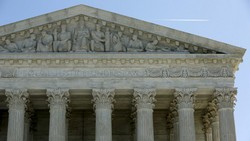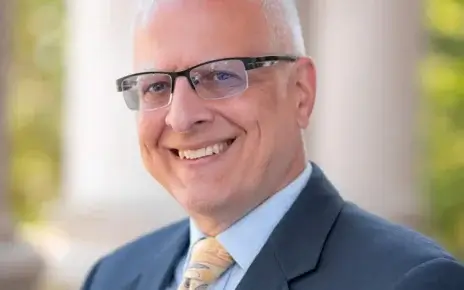The U.S. Supreme Court upheld the ruling of a lower federal court, which requires all non-profit groups to disclose the identity of any donor giving more than $200 when such groups advertise for or against political candidates, on Tuesday, Sept. 18.
The ruling was a result of a six-year-long case brought on by Citizens for Responsibility and Ethics in Washington (CREW), a 501(c) (3) nonprofit organization.
According to its official website, CREW “uses aggressive legal action, in-depth research, and bold communications to reduce the influence of money in politics and help foster a government that is ethical and accountable.”
In Oct. 2012, CREW filed a complaint to the Federal Election Commission (FEC), requesting that a conservative non-profit group called Crossroads GPS should be required to disclose the names of their donors.
The request was issued after Crossroads GPS ran a $6 million campaign in opposition to Senator Sherrod Brown (D-OH).
On Aug. 3, 2018, the U.S. District Court for the District of Columbia granted CREW’s Motion for Summary Judgment and denied the FEC’s and Crossroads GPS’s cross-motions.
According to the FEC official litigation records, the court “stayed the vacatur” for 45 days to provide time for the FEC to issue interim regulations consistent with the Federal Election Campaign Act.
The Court also vacated the Commission’s dismissal of an administrative complaint against Crossroads GPS and remanded the matter for reconsideration.
Joseph Patten, Ph.D., Chair of the Department of Political Science and Sociology, and an associate professor of political science, believes that the ruling can impact the upcoming 2018 midterm elections since many large donations are given in the weeks leading up to the elections.
Patten conferred that the ruling, is particularly significant in two respects. The first is the fact that the ruling comes approximately just six weeks before the midterm elections.
The second is that this ruling also closes a loophole that has been left open for decades upon decades when it comes to financing political campaigns.
“The ‘dark money’ loophole enables people and corporations to contribute large sums of money without anyone knowing about it,” said Patten.
This loophole was created by the FEC nearly 40 years ago, allowing wealthy donors to finance aggressive ads, while their identity remained anonymous.
“It’s also been a source for foreign money to enter into our elections, which is illegal,” Patten explained.
“In 2016, Russia was able to funnel money through some political action committees that do not disclose sources and that money was then brought into our elections,” he continued.
According to research conducted over the period of one year by Issue One, a nonpartisan government reform organization, it has been found that the top 15 politically active non-profits raised and spent more than $600 million on campaigns between the years 2010-2016.
John Suttile, a junior political science student, stated that he believes that everyone is entitled to vote for who they want and have their own political opinions.
However, Suttile explained, he does think that that the relationship between transparency and government, especially, within the U.S. is becoming ever more important.
“I absolutely think that ads that are produced or back by non-profits influence voter decision,” said Suttile.
“People rely heavily on the media such as news channels or social media outlets to get a sense of what a particular candidate stands for,” he continued.
“The constant barrage of ads being displayed, whether they are for against candidates definitely influence voters’ outlook on candidates,” Suttile continued.
Because of its importance in voting, Patten believes that this recent decision from the Supreme Court is a step in the right direction for American politics, and how politicians campaign.
“Advocates for campaign finance reform have been trying to close the dark money loophole since SuperPacs were allowed to form after the Citizens United and Speech Now cases in 2010,” he said.
With this decision, Patten believes that Congress can now create and pass more comprehensive campaign finance reform bills.
Voters will now also be more aware of who they are voting for, and where they receive their donations.
From WikiLeaks founder Julian Assange to Edward Snowden as well as with the assistance of social media and the Internet, politicians can easily be influenced by campaign donors.
Knowing who and where the money is coming from can lead citizens, with the right to vote, to make a more informed decision as to who they vote for.
IMAGE TAKEN from The Atlantic




